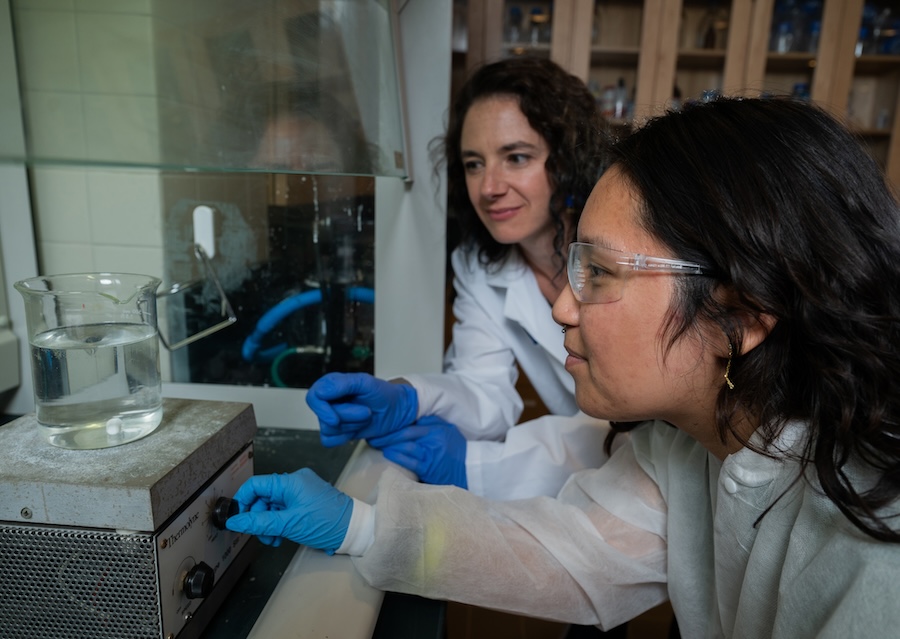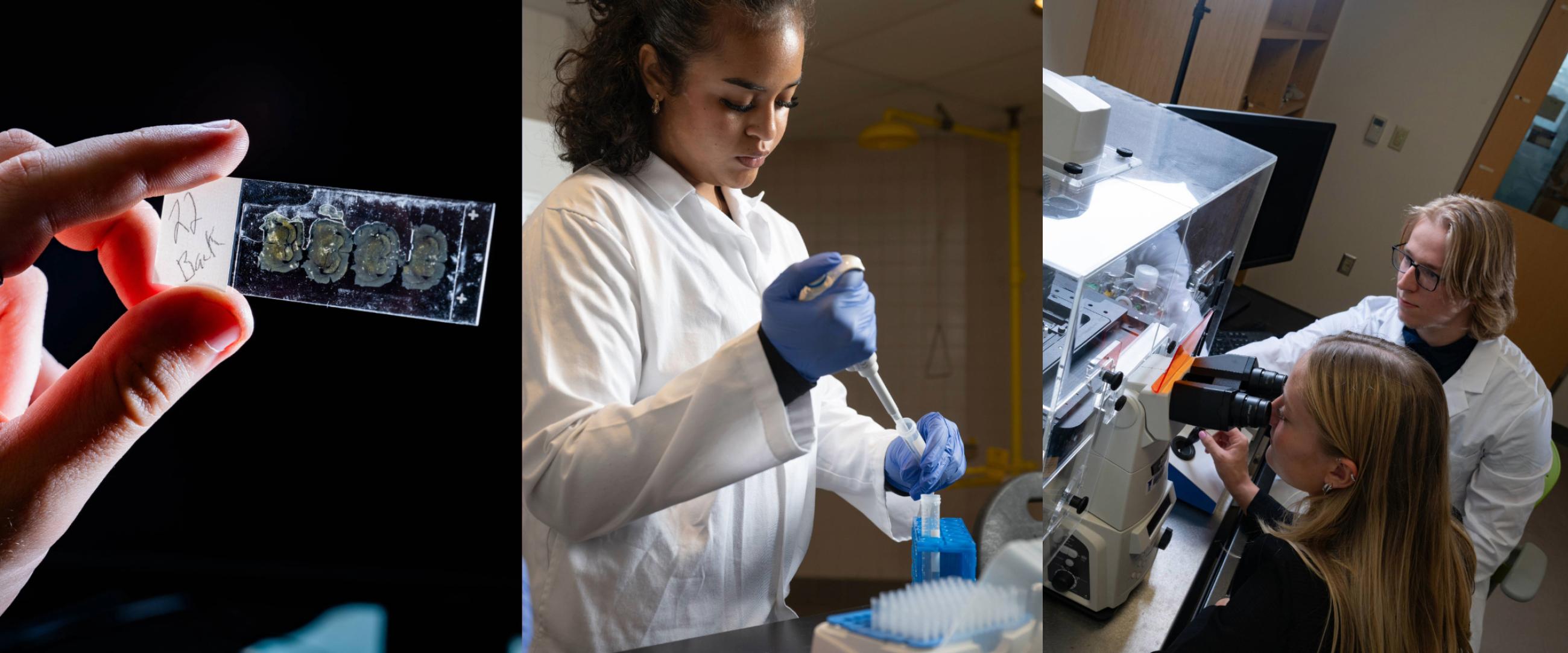Southern’s B.S. in Behavioral Neuroscience offers an interdisciplinary approach to studying the nervous system, integrating insights from biology, psychology, and other sciences to explore both its functions and diseases.
The program is designed to offer a thorough education on the complexities of the nervous system, promoting an in-depth understanding of brain function and behavior. By combining insights from biology, psychology, and other related disciplines, this major provides a strong foundation in neuroscience. It prepares students for various career paths in research, healthcare, and industry.
Hands-On Learning and Research Opportunities
Through hands-on lab experiences, cutting-edge research opportunities, and faculty mentorship, students will develop critical thinking skills and the ability to apply theoretical knowledge to real-world challenges, ensuring their readiness for advanced studies or fulfilling careers in neuroscience-related fields. This major is designed to align with students' educational goals by offering a robust curriculum and a supportive learning environment, ultimately empowering them to pursue meaningful and impactful careers in the rapidly evolving field of neuroscience.
Curriculum Addressing Societal Issues
The curriculum will address such important issues as mental health disparities, social determinants of health, and ethical considerations in neuroscience, promoting a well-rounded understanding of the field's societal implications. The emphasis on diversity in research and coursework not only enriches the educational experience for all students but also contributes to the cultivation of a more inclusive scientific community.
Commitment to Diversity, Equity, and Inclusion
Further, the establishment of this major aligns resolutely with the university's commitment to promoting diversity, equity, and inclusion. Neuroscience, as a multidisciplinary field, offers a platform for students from varied backgrounds to contribute diverse perspectives to scientific inquiry. By fostering an inclusive learning environment, the major provides opportunities for individuals from underrepresented groups to actively participate in groundbreaking research and innovation.
By intentionally encouraging diversity within the Neuroscience major, the university takes a crucial step towards creating a campus culture that values and celebrates differences. This aligns with broader societal goals of equity and inclusion, ensuring that the benefits of education and research in neuroscience are accessible to a broad and representative range of students, thereby contributing to a more equitable and inclusive academic landscape.
Curriculum
Major Requirements
| Course | Credits |
| BIO102: Biology I | 4 |
| BIO 454: Brain Anatomy and Transmission | 4 |
| BIO 398: Developmental Neurobiology | 4 |
| BIO 236: Cell Biology | 4 |
| PSY100: Introduction to Psychology | 3 |
| PSY259: Psychological Statistics | 3 |
| PSY393: Research Methods | 4 |
| PSY311: Learning | 3 |
| PSY313: Cognition | 3 |
| PSY383: Brain and Behavior | 3 |
Select One Course From
| Course |
| PSY 463: Field Practicum in Psychological Research |
| PSY 467: Laboratory Practicum in Psychological Research |
| BIO 499: Independent Study in Research |
| BIO 497: In-service Training in Biology |
| BIO 390: Biology Research and Training |
| HON 494: Honors Prospectus |
Select Two Courses From
| Course |
| PSY 484: Comparative Animal Behavior |
| PSY 487: Psychopharmacology |
| PSY 494: Seminar in Human Nervous System |
| BIO 401: Comparative Physiology |
| BIO 351: Histology |
Open Electives
9 additional credits
Cognates
| Course |
| CHE120 General Chemistry I |
| CHE121 General Chemistry II |
| PHY200 General Physics I |
| PHY201 General Physics II |
| CHE260 Organic Chemistry |
The Academic Map serves as a suggested course sequence only. Students are not limited to this plan; it is meant to be used as a guide for planning purposes. Projected course offerings are subject to change due to faculty availability and student demand.

Careers
Upon graduation, students will be prepared for a variety of careers in health and research. The degree also provides preparation for students interested in pursuing graduate degrees in all areas of neuroscience and/or behavioral biology, or in pursuing professional degrees.
School / College
College of Arts & Sciences
Department
Behavioral Neuroscience
Contact
Dr. Rachel Jeffrey
Dr. Kelly Bordner

